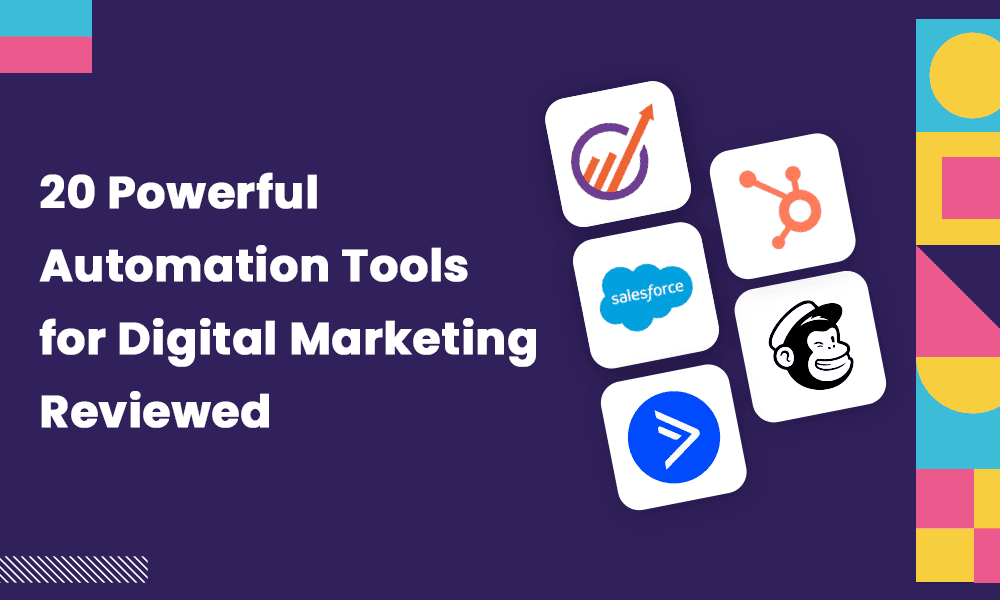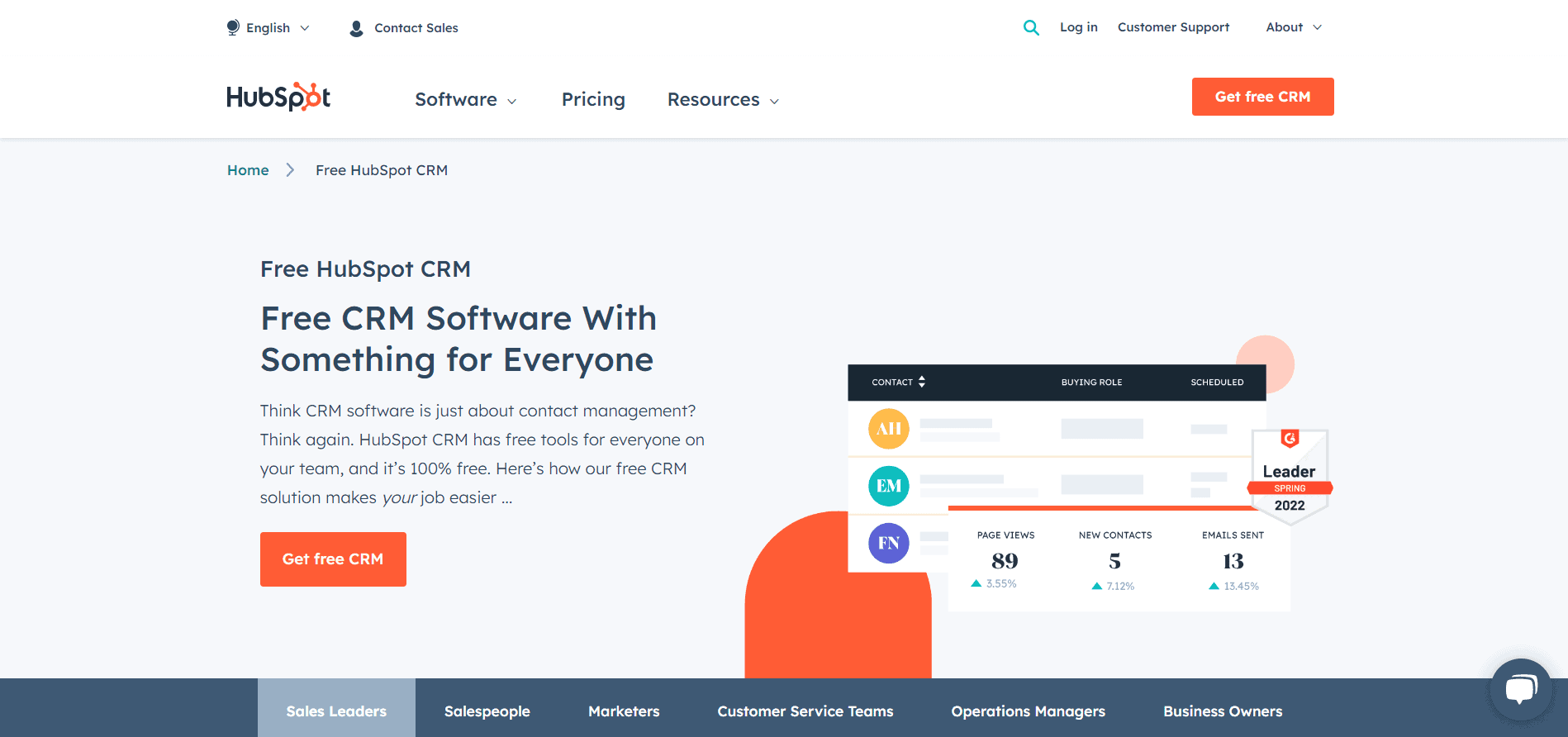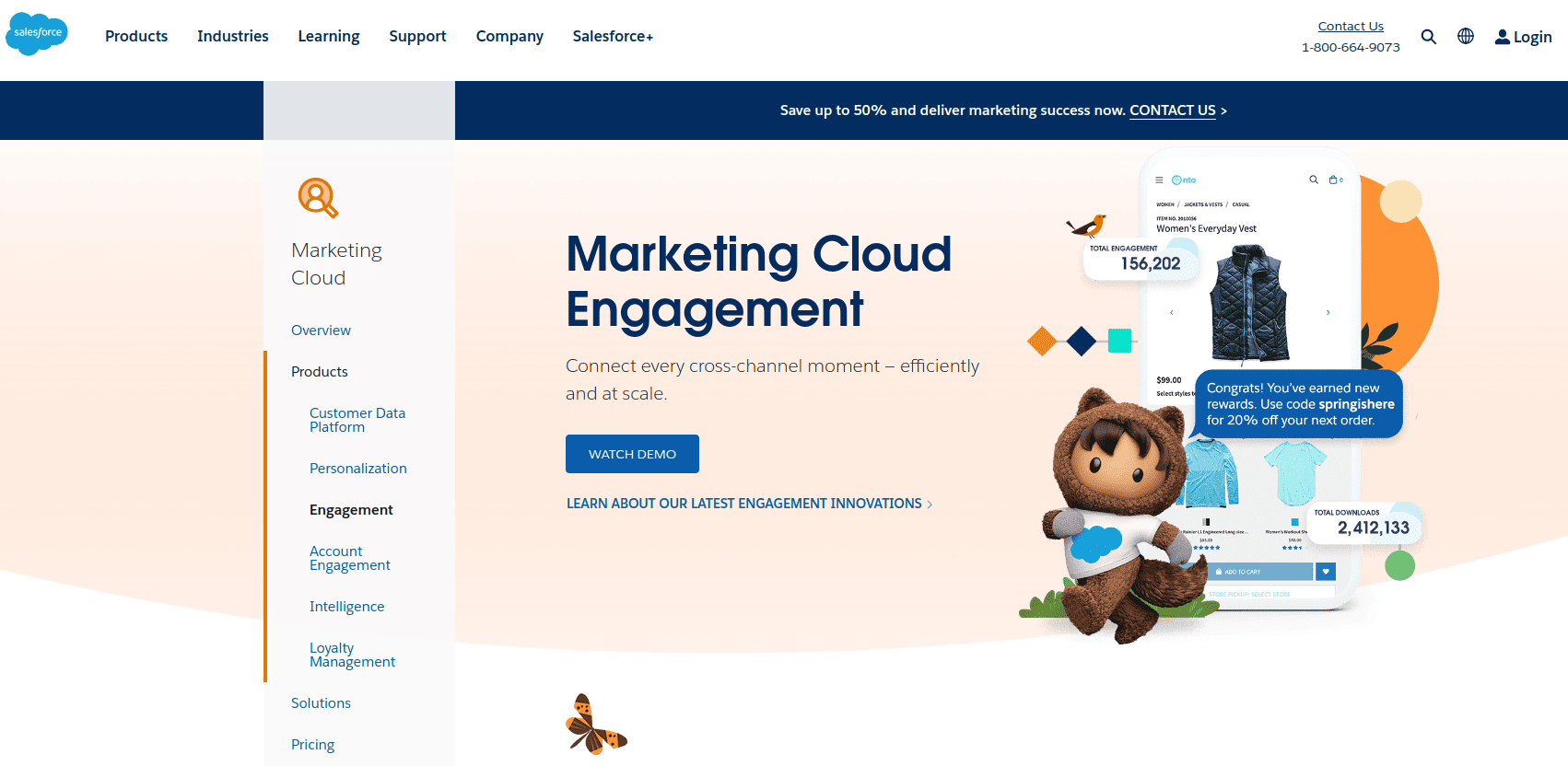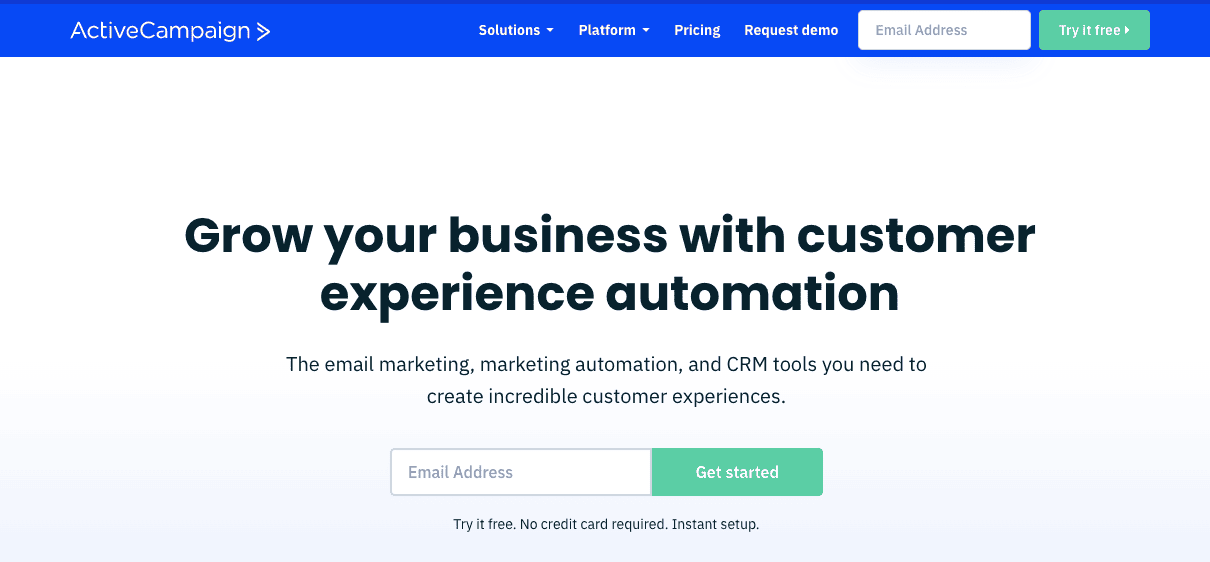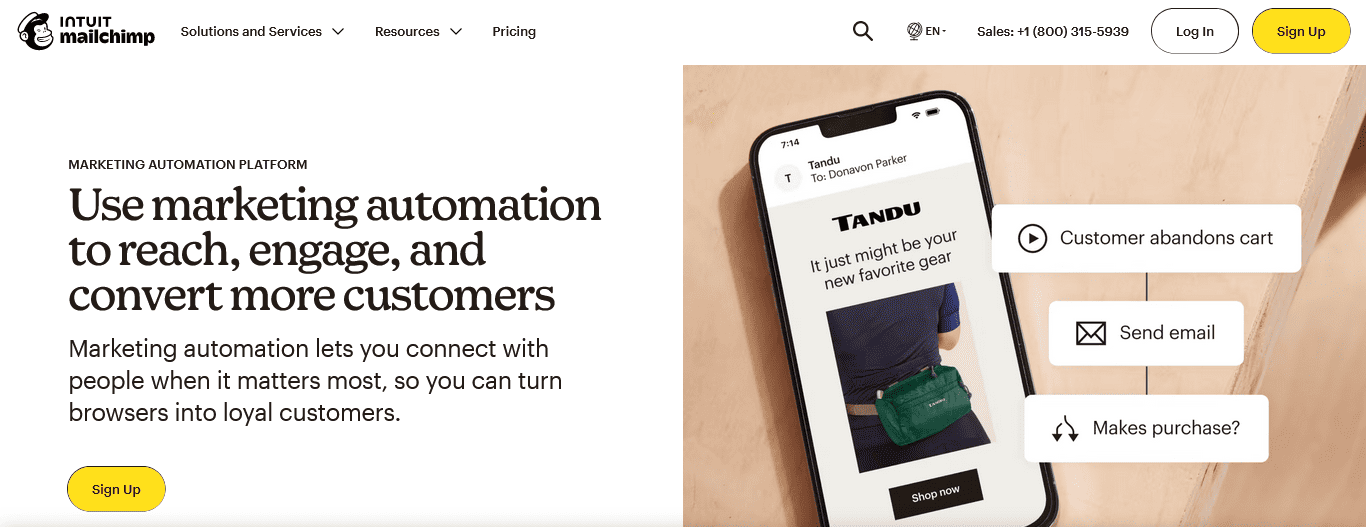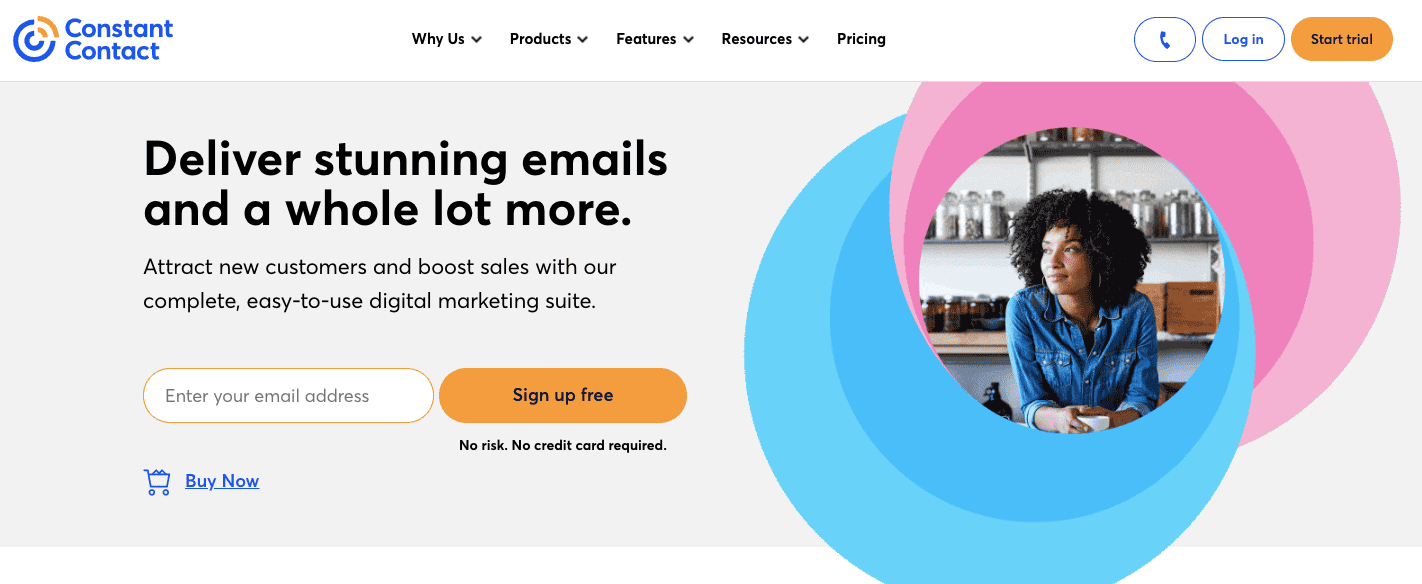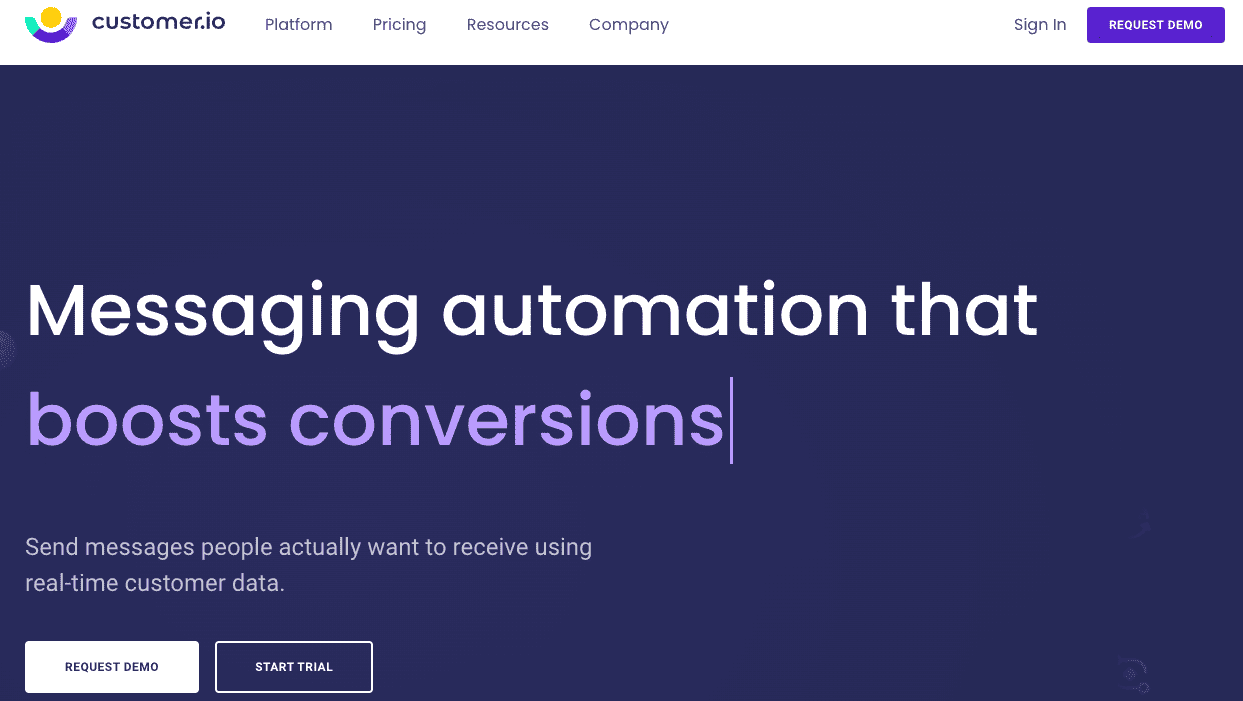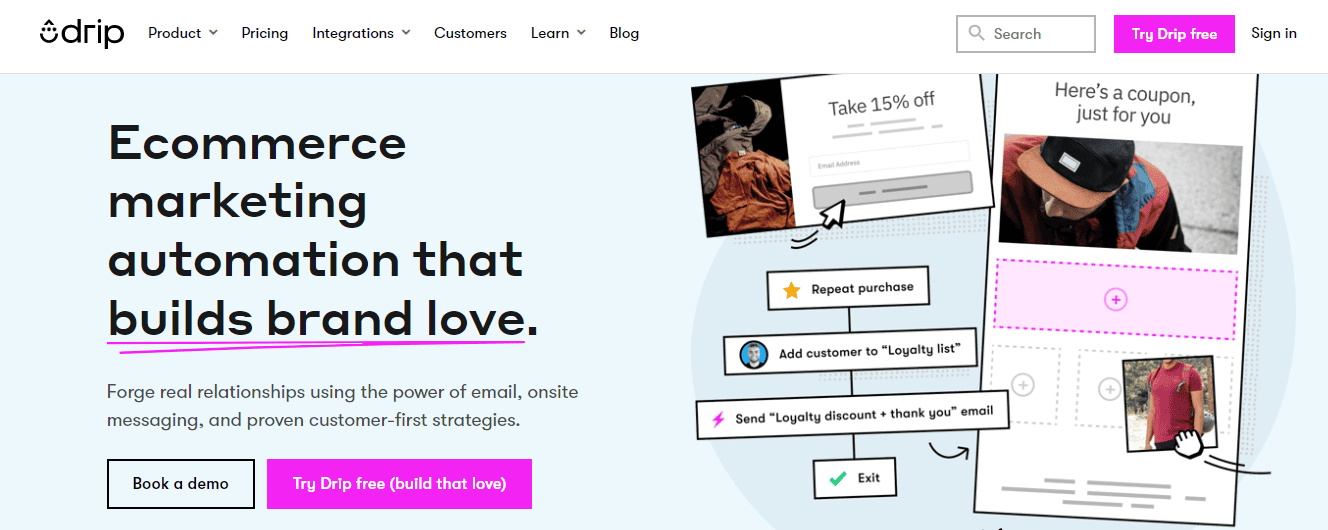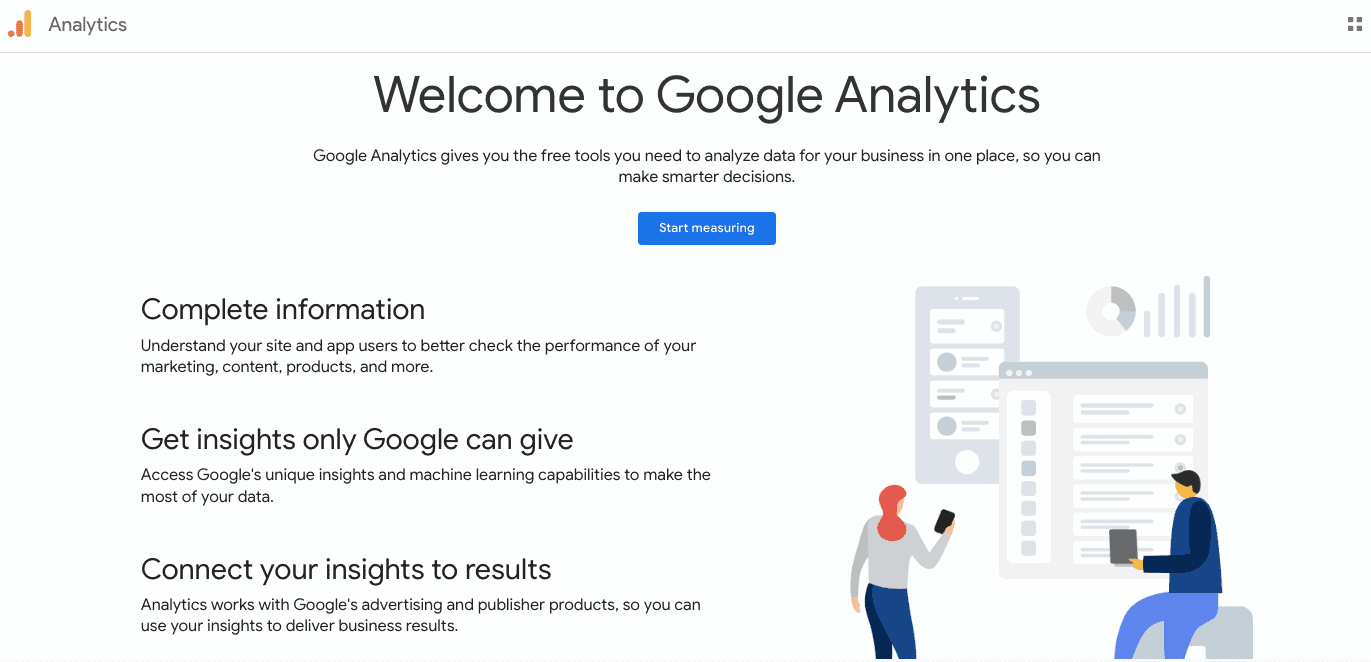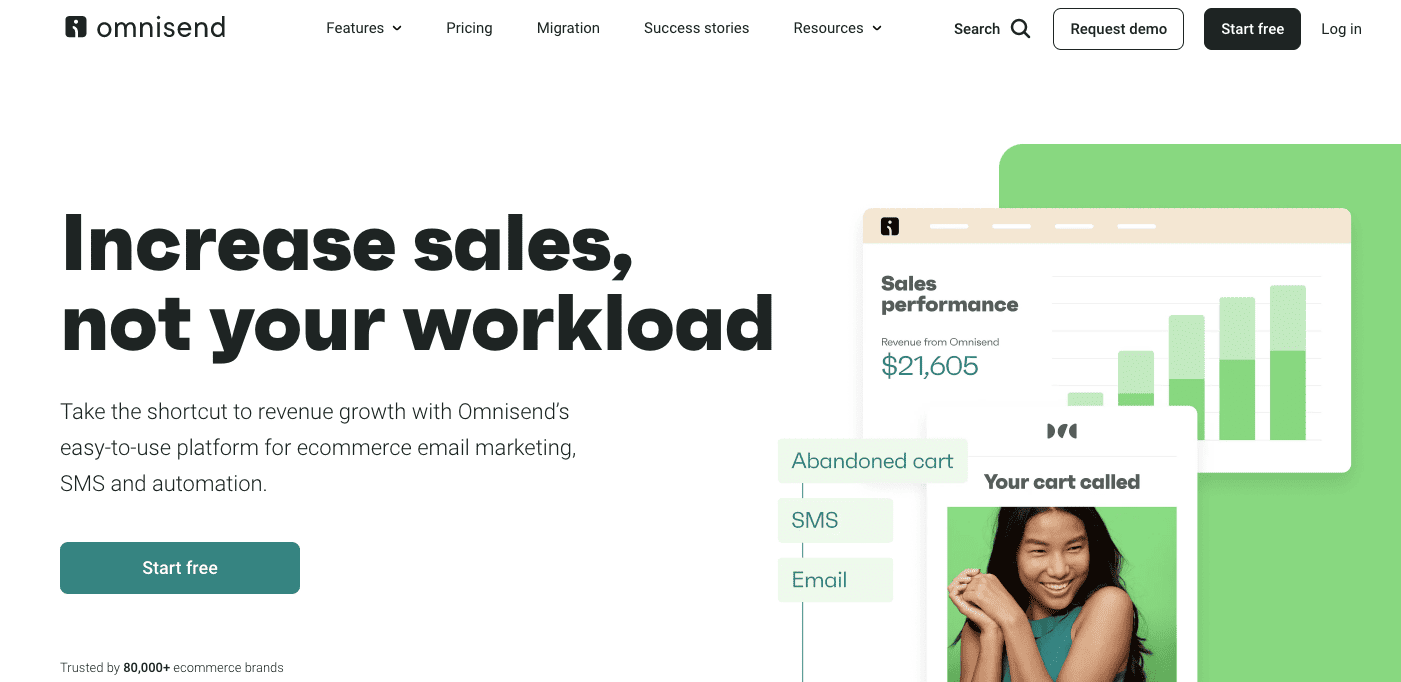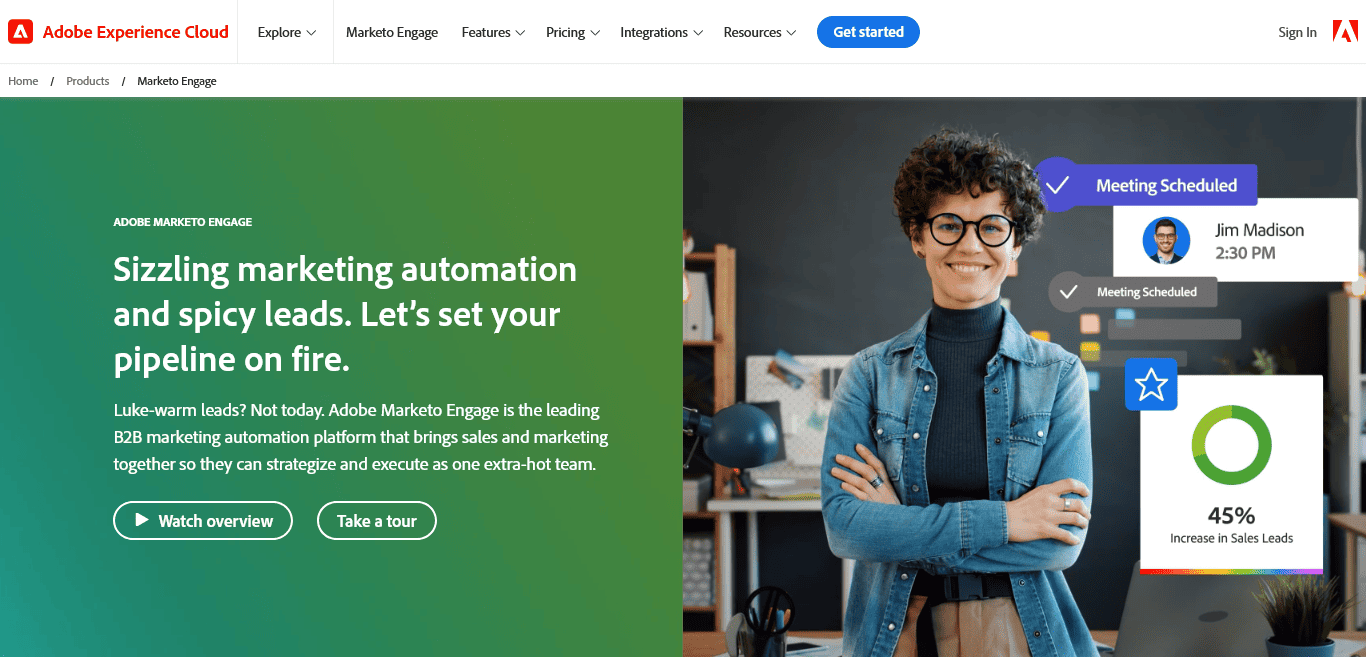The advent of automation tools for digital marketing has ushered in a new era of efficiency and effectiveness.
Businesses leveraging automation tools have witnessed a 14.5% in productivity and a 12.2% reduction in marketing overhead. It’s a testament to the transformative impact these tools can have on a company’s digital marketing strategy.
Automation tools have emerged as indispensable assets for digital marketers – designed to automate many tasks, from email campaigns to social media management, SEO optimization, and beyond. In essence, there are tailored software tools to streamline and enhance each aspect of your business.
In this blog post, we will compare various automation tools for digital marketing, exploring the diverse range of solutions available and their undeniable impact on optimizing workflows and driving business success.
Table of Contents
Comprehensive Automation Tools for Digital Marketing
The need to streamline and automate diverse marketing activities has given rise to the need for comprehensive marketing automation platforms.
These platforms aim to provide an all-encompassing suite of features, catering to the intricate needs of modern businesses seeking efficiency, scalability, and a centralized approach to their marketing efforts.
Let’s look at the three notable players in this field: EngageBay, HubSpot, Salesforce Marketing Cloud, and ActiveCampaign.
1. EngageBay
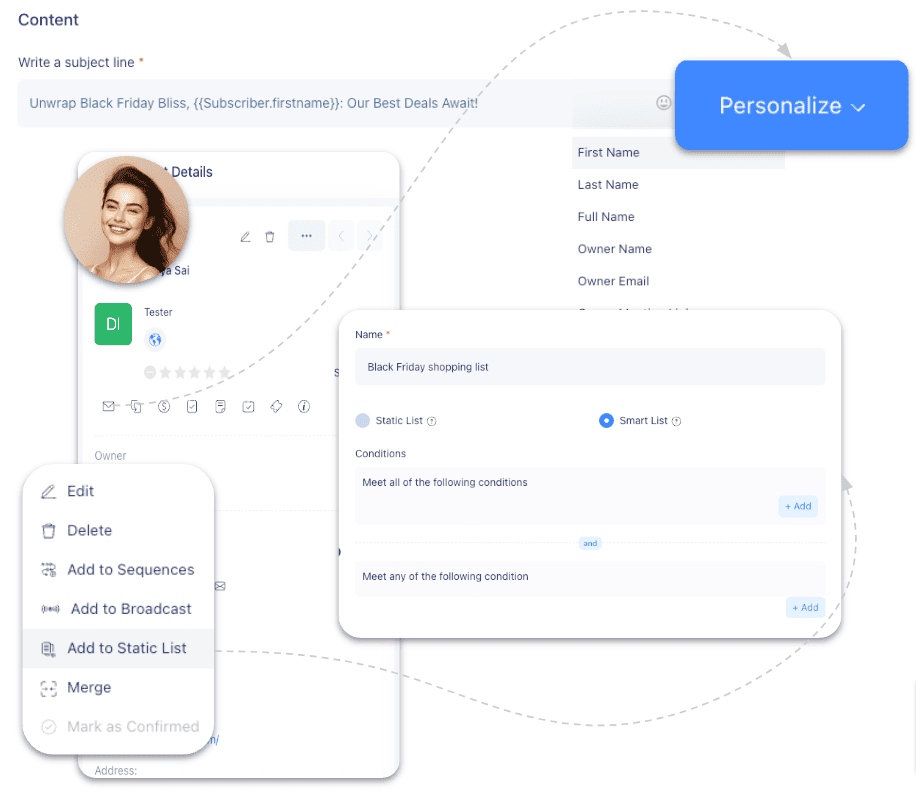
Best for: Small businesses looking for an all-in-one marketing and CRM software.
Overview: EngageBay is an all-encompassing CRM solution designed to streamline all aspects of businesses, including marketing, sales, and service.
From contact management to marketing automation, EngageBay consolidates various business functions into a unified platform. It simplifies workflows and helps foster efficient customer relationship management.
Key features:
| ✅ Automation workflows | ✅ Custom reporting |
| ✅ Predictive lead scoring | ✅ Landing pages, email templates, and forms |
Pricing: EngageBay offers a range of pricing plans to accommodate different business needs, starting from $12.74 per user per month. There’s also a free-forever plan with limited features for up to 250 contacts and 15 users.
2. HubSpot
Best for: Small to medium-sized businesses seeking basic functionality across multiple marketing systems.
Overview: HubSpot is an all-in-one marketing automation software that helps streamline your entire marketing process. With a user-friendly interface and a free option, it provides essential features like email marketing, social media scheduling, and CRM integration.
HubSpot’s strength lies in its simplicity, making it an ideal choice for those just entering the realm of marketing automation.
Key features:
| ✅ Lead nurturing | ✅ Campaign management |
| ✅ Audience segmentation | ✅ Multiple integrations |
Pricing: HubSpot offers a range of pricing plans, including a free option with basic features. Paid plans vary based on the level of sophistication and scale required by the business.
3. Salesforce Marketing Cloud
Best for: Large enterprises with advanced marketing automation needs, especially those looking for multi-channel targeting capabilities.
Overview: Salesforce Marketing Cloud is a powerhouse designed for enterprises requiring a robust, scalable solution. It excels in multi-channel marketing, allowing businesses to create an omnichannel presence.
With features like personalized customer journeys and deep analytics, Salesforce Marketing Cloud empowers businesses to deliver highly tailored experiences.
Key features:
| ✅ Marketing AI | ✅ Personalization |
| ✅ Customer loyalty program | ✅ Content creation |
Pricing: Salesforce Marketing Cloud’s pricing is tailored to enterprise needs and tends to be on the higher end. It starts at $1,250 per month and can go up to $100,000 annually.
4. ActiveCampaign
Best for: Businesses focusing on optimizing customer experience through behavior analysis and automated actions.
Overview: ActiveCampaign provides a centralized platform to empower businesses to generate leads, nurture them, and sharpen their marketing efforts. Behavior analysis enables businesses to understand and respond to customer interactions.
The platform offers a variety of automation features, including personalized email campaigns and predictive sending, making it a valuable asset for businesses aiming to create meaningful customer engagements.
Key features:
| ✅ Forms and landing page | ✅ Segmentation |
| ✅ Account management | ✅ AI-powered experiences |
Pricing: ActiveCampaign provides tiered pricing based on the contact list size and the required features. It starts at $29 per month and can go up to $259 per month.
Read also: Pipedrive vs HubSpot vs EngageBay: Which CRM Is Smarter & Better?
Email Marketing Automation Tools
Did you know that automated emails generate 31% of all email orders?
Email marketing automation tools have revolutionized the way businesses engage with their customers. They are widely used to send emails with targeted, personalized communication at scale.
Let’s explore notable tools in this category, each catering to specific needs and preferences.
1. Mailchimp
Best for: Businesses seeking a comprehensive marketing automation solution along with email marketing capabilities.
Overview: Mailchimp extends beyond traditional email marketing, offering a full suite of automation features.
From personalized email campaigns to customer journey mapping, Mailchimp empowers businesses with a robust set of tools. Its pre-built journeys are designed to help cross-sell your products, recover abandoned carts, win new customers, and more, making it easy to get started.
Key features:
| ✅ Customized, pre-designed templates | ✅ High deliverability rate |
| ✅ Social media marketing | ✅ 24/7 friendly customer service |
Pricing: Ranges from $9.20 to $274.85 per month for up to 500 contacts. Its price varies based on the number of contacts.
2. Automizy
Best for: Businesses looking to enhance email open rates with AI-driven features.
Overview: Automizy has innovative features such as an AI subject line tester and A/B testing. It claims to increase your open rate by 34% by predicting the performance of your subject lines with scores based on data from over 1 million campaigns, making it a great email marketing software.
These functionalities aim to optimize email content for higher engagement.
Key features:
| ✅ Seamless integration with major platforms | ✅ Robust analytics tool |
| ✅ Responsive landing pages | ✅ Visual automation builder |
Pricing: Automizy is an affordable choice for businesses, starting at $9 per month for up to 200 contacts.
3. Constant Contact
Best for: Small businesses needing automated trigger campaigns and content optimization.
Overview: Constant Contact specializes in catering to smaller businesses, offering intuitive automation features. From trigger campaigns based on customer actions to segmented follow-up messages, Constant Contact ensures personalized communication.
Plus, it ensures you send the right message with dynamic content blocks that adjust based on who views the email.
Key features:
| ✅ Mobile app | ✅ Revenue reporting |
| ✅ Customized solutions | ✅ Award-winning support |
Pricing: Ranges from $18 to $575 per month, depending on the number of contacts.
4. Customer.io
Best for: Businesses looking for a single digital marketing automation tool to manage customer lifecycle engagement across mobile and web.
Overview: Customer.io places emphasis on engaging customers throughout their journey. It offers powerful segmentation of the audience by taking into account millions of events from users per day and builds any marketing campaign action possible to create workflows.
Besides, you can include in-app messages and push notifications into your messaging strategy alongside your emails.
Key features:
| ✅ Visual workflow builder | ✅ Managed deliverability |
| ✅ Transactional API | ✅ Technical support |
Pricing: Starts at $100 per month with 5,000 profiles, reflecting its specialization in fostering long-term customer relationships.
5. Drip
Best for: eCommerce businesses seeking integration with various tools for personalized content creation.
Overview: Drip is designed with eCommerce in mind. It has pre-built workflows and playbooks for eCommerce, and its user interface is designed with eCommerce stores in mind.
It enables personalized content creation targeted towards individual customer preferences. For instance, it automatically adds items customers left behind into the cart abandonment emails.
Key features:
| ✅ Dynamic product blocks | ✅ Sync your brand style |
| ✅ Integration with Shopify | ✅ Intuitive email visual builder |
Pricing: Prices start at $39 per month, with no hidden fees. Its pricing is based on your list size and send volume.
Read also: CRM for Marketing Success: What Tools to Use and How
Marketing Analytics and SEO Tools
Staying ahead in search engine rankings is pivotal for success in today’s digital era. Analytics and SEO tools play a crucial role in understanding user behavior and providing actionable insights to optimize strategies.
Let’s explore some key analytics and SEO tools.
1. Google Analytics
Best for: Comprehensive website traffic analysis and user behavior insights.
Overview: Google Analytics is a free and robust marketing tool that empowers marketers with detailed data on website visitors, their interactions, and conversion metrics. It enables businesses to make informed decisions about content, user experience, and marketing strategies.
It also empowers businesses with measurement when observed data isn’t available. And the best part is that it works seamlessly with other Google solutions and partner products, thereby increasing efficiency.
Key features:
| ✅ Predictive capabilities | ✅ Real-time reporting |
| ✅ Funnel exploration | ✅ Tag management support |
Pricing: Free with premium options available (Google Analytics 360 for enterprise-level features).
2. Yoast SEO
Best for: Improving website visibility in search engine results.
Overview: Yoast SEO guides users in optimizing their content for search engines. Its features include real-time content analysis, ensuring that each piece of content is crafted with SEO best practices in mind.
From readability checks to keyword optimization, Yoast SEO provides a user-friendly toolkit for improving a website’s search engine ranking.
Key features:
| ✅ Generative AI capabilities | ✅ Crawl optimization settings |
| ✅ Internal linking blocks | ✅ 24/7 support |
Pricing: A free plan is available, along with paid plans for advanced features.
3. Semrush
Best for: Comprehensive insights into marketing campaigns, including keyword research and backlink analysis.
Overview: Semrush is a robust SEO tool designed to offer insights that go beyond the basics. It offers features such as keyword analysis, competitor tracking, and backlink audit, equipping marketers with the tools needed to enhance their marketing campaigns. Moreover, it lets you run technical SEO audits and track your SERP positions daily.
By understanding the competitive landscape and identifying strategic opportunities, businesses can refine their content and SEO strategies for improved performance.
Key features:
| ✅ Analyze competitor websites | ✅ PPC campaigns management |
| ✅ White-labeled or branded reports | ✅ Content optimization |
Pricing: Starts at $129.95 per month and can range up to $499.95 per month. It also offers customer pricing for its enterprise plan.
4. Google Trends
Best for: Identifying popular search terms and emerging trends.
Overview: Google Trends is a valuable tool for marketers seeking to understand the popularity of search queries over time. By analyzing trending topics and queries, businesses can align their content strategies with current interests and capitalize on emerging trends.
In other words, it shows what people are searching for in real-time. When you search for a topic, it displays a graph that reveals its popularity over time.
Key features:
| ✅ Search by location | ✅ Filter by category |
| ✅ Detailed comparison | ✅ Curated explored issues and events |
Pricing: Free to use.
Read also: 12 eCommerce Analytics Tools for Pro-Level Tracking
Social Media Automation Tools
Automation tools have become integral for managing and growing an online presence on social media. It helps maintain engagement across various platforms by automating the scheduling of posts and responding to customers’ queries.
Unsurprisingly, social media management is the second most automated marketing channel.
In this section, let’s explore three notable social media automation tools – each catering to distinct needs and offering unique features to enhance your social media strategy.
1. Buffer
Best for: Businesses looking to focus on organic engagement growth across various social media platforms.
Overview: Buffer simplifies social media management by allowing users to schedule posts across multiple platforms, engage with their audience, and analyze posts. It provides a user-friendly dashboard, making managing and tracking social media activities easy.
With a focus on authentic audience interactions, it stands out as a tool for those seeking to build a genuine online community.
Key features:
| ✅ AI assistant | ✅ Tailored post |
| ✅ Account management | ✅ Prioritize important conversations |
Pricing: Buffer offers various pricing plans, including a free plan with limited features. Paid plans start at $6 per month for one channel, offering scheduling, analytics, and collaboration features.
2. Nitreo
Best for: Businesses looking to foster organic engagement, particularly on Instagram.
Overview: Nitreo places a premium on individualized client needs, emphasizing sustained engagement over time. The tool employs targeted strategies to grow followers, enhance content visibility, and foster meaningful interactions.
It also provides analytics to measure the success of growth strategies. And it follows relevant accounts, likes, comments, views, profiles, and stories on your behalf.
Key features:
| ✅ Organic profile views | ✅ Daily report |
| ✅ More profile visits | ✅ Gender targeting |
Pricing: Starts at $69 per month and goes up to $239 per month. Plans may include features like location targeting, gender targeting, and more.
3. Omnisend
Best for: Brands seeking to integrate various social channels for audience segmentation and a deep understanding of buying intent
Overview: Omnisend is a comprehensive automation tool that goes beyond social media management. It seamlessly integrates various social channels, allowing marketers to segment their audience effectively and gain insights into consumer behavior and buying intent. This makes it a powerful solution for those aiming to align their social media efforts with broader marketing strategies.
Key features:
| ✅ Success manager | ✅ Advanced reporting |
| ✅ Web push notification | ✅ 130+ integrations |
Pricing: Omnisend typically offers tiered pricing plans starting from $16 per month.
Read also: 25+ Brilliant Small Business Tools for the Internet Champion
Other Notable Tools
In this digital era, many tools exist beyond the mainstream, each carving its niche with distinct features and functionalities. This segment explores a curated selection of a few more noteworthy tools, unveiling their unique contributions to marketing automation.
From customer journey optimization to affordable email solutions and all-in-one CRM platforms, these tools stand as valuable assets to marketers.
Let’s dive in.
1. Marketo Engage
Best for: Ideal for businesses looking to optimize complex, cross-channel customer journeys.
Overview: Adobe Marketo Engage is a comprehensive marketing automation platform designed to optimize customer journeys across various channels. It uses rich behavioral data, built-in intelligence, and sophisticated journey flows to create personalized experiences for your customers.
Marketo Engage is a robust solution for businesses seeking a holistic approach to customer engagement from lead management to analytics.
Key features:
| ✅ Content Intelligence | ✅ Advanced lead scoring |
| ✅ Analytics | ✅ Generative AI |
Pricing: For detailed pricing information, you have to contact their sales team directly.
2. Moosend
Best for: Businesses looking for an affordable email marketing solution to drive revenue growth.
Overview: Moosend is a budget-friendly email marketing platform that doesn’t compromise on features. It offers intuitive email design tools, advanced automation, and web tracking capabilities.
Particularly well-suited for small enterprises, Moosend provides a powerful yet accessible solution for businesses looking to establish and nurture their email marketing strategies.
Key features:
| ✅ Automation workflows | ✅ Custom reporting |
| ✅ Transactional emails | ✅ Landing pages and forms |
Pricing: Moosend’s pricing plans vary based on the number of subscribers and features required. It starts at $9 per month with a 30-day free trial period.
3. Eloqua
Best for: Businesses seeking an enterprise-level marketing automation platform with advanced features.
Overview: Eloqua, part of the Oracle Marketing Cloud, is an enterprise-level marketing automation platform that is designed to help manage cross-channel B2B marketing campaigns.
It can adapt to the changing customer needs and move them to a different campaign to better match their interests. Some of its advanced automation features include lead scoring, segmentation, and targeting, making it the best marketing automation tool for enterprises.
Key features:
| ✅ Automation workflows | ✅ Asset management |
| ✅ Predictive lead scoring | ✅ Advanced intelligence |
Pricing: For detailed pricing information on Eloqua, get in touch with their sales team.
4. Hootsuite
Best for: Popular for social media marketing automation, supporting all social platforms.
Overview: Hootsuite is a widely recognized platform for social media marketing automation. With a promise of 500% growth across all social channels, it allows users to schedule posts, monitor social media engagement, and analyze performance.
Hootsuite is an essential tool for businesses seeking to streamline their social media marketing efforts and maintain a consistent online presence.
Key features:
| ✅ AI content creation | ✅ Social listening |
| ✅ Engagement tools | ✅ Social advertising |
Pricing: Hootsuite offers various pricing plans based on the number of users and features required. Visit Hootsuite’s official website for detailed pricing information tailored to your business needs.
Read also: Email Marketing vs Marketing Automation — A Marketer’s Guide
Wrap Up
Automation is not just a trend but a fundamental shift in marketing. Adopting automation tools for digital marketing represents a commitment to staying ahead in the competitive digital sphere, allowing marketers to focus on strategic thinking and creativity while repetitive tasks are automated.
These tools, though diverse in their offerings, get unified in their goal to streamline processes. From personalized customer journeys to data-driven decision-making, they lay the foundation for success.
So, equip yourself with the right tools and automate intelligently to yield the maximum results. Remember, each tool caters to different business sizes and needs.
When choosing an automation tool for digital marketing, it’s important to consider factors like budget, business requirements, user-friendliness, customer service, and integration capabilities.
Sign up with EngageBay for free, or book a demo with our experts.

